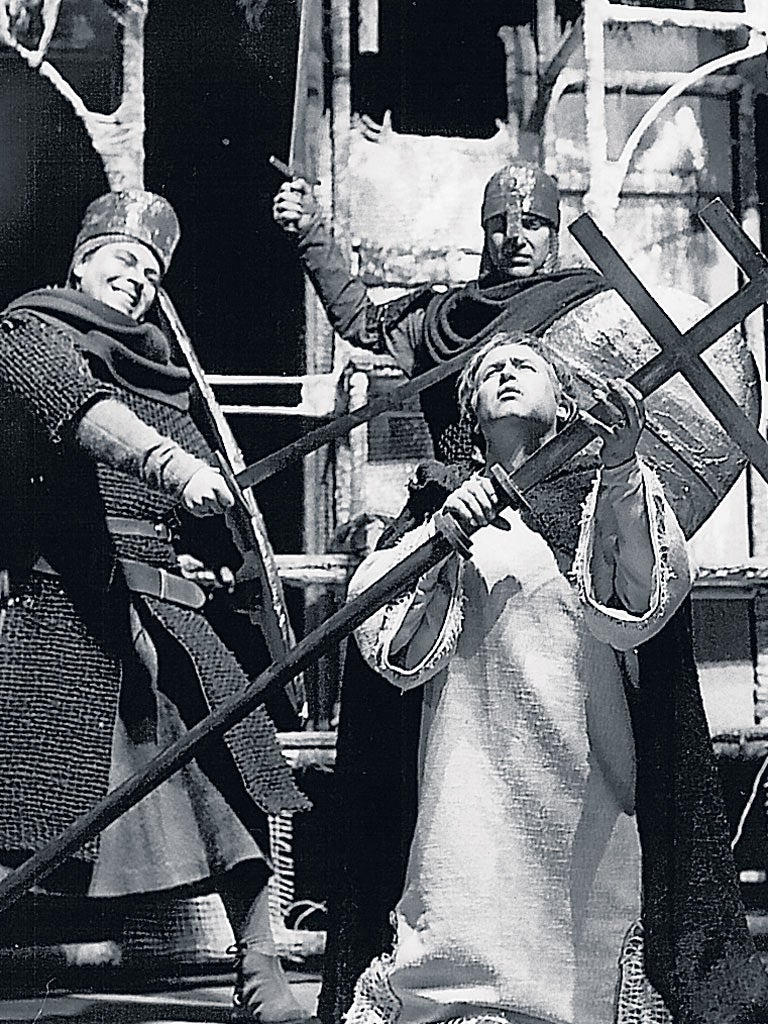Don Garrard: Bass who made his name with the Sadler's Wells company

Your support helps us to tell the story
From reproductive rights to climate change to Big Tech, The Independent is on the ground when the story is developing. Whether it's investigating the financials of Elon Musk's pro-Trump PAC or producing our latest documentary, 'The A Word', which shines a light on the American women fighting for reproductive rights, we know how important it is to parse out the facts from the messaging.
At such a critical moment in US history, we need reporters on the ground. Your donation allows us to keep sending journalists to speak to both sides of the story.
The Independent is trusted by Americans across the entire political spectrum. And unlike many other quality news outlets, we choose not to lock Americans out of our reporting and analysis with paywalls. We believe quality journalism should be available to everyone, paid for by those who can afford it.
Your support makes all the difference.The Canadian bass Don Garrard sang in the UK for over 20 years, with the Royal Opera, Scottish Opera, Welsh National Opera, and above all with Sadler's Wells, now English National Opera. He had a natural authority, both of voice and bearing, that served him well in roles such as Sarastro in The Magic Flute, Prince Gremin in Tchaikowsky's Eugene Onegin and the Grand Inquisitor in Verdi's Don Carlos. The warmth of his voice and personality also allowed him to play loving fathers with equal facility; among these Daland in Wagner's The Flying Dutchman and Arkel in Debussy's Pelléas et Mélisande are good examples. His singing was also much appreciated in Canada and the US.
Don Garrard was born in Vancouver in 1929. He studied in Santa Barbara, California, with Lotte Lehmann, then at the Toronto Royal Conservatory, making his stage debut in 1952 at Vancouver as the Speaker in The Magic Flute. After singing in Canada for some years, he went to Milan for further study with Luigi Borgonovo. In 1961 he came to London and joined Sadler's Wells Opera, as it then was, making his debut as Sparafucile in Verdi's Rigoletto, followed by Alidoro in Rossini's Cenerentola. The following year he sang two roles that would develop into favourites, Trulove in Stravinsky's The Rake's Progress, which he recorded under the composer's baton, and Sarastro. He also sang Thomas Becket in the UK premiere of Pizzetti's Murder in the Cathedral in Coventry and the London premiere at Sadler's Wells.
Garrard sang in another Dallapiccola UK premiere in 1963, as Riviere in Night Flight for Scottish Opera. In 1964 he took part in the world premiere of Britten's Church Parable, Curlew River, at the Aldeburgh Festival. He first sang at Glyndebourne in 1966, as Zebul in Handel's Jephtha.
At Sadler's Wells he acquired a fast- growing repertory: the Tutor in Rossini's Count Ory, the King of Clubs in Prokofiev's Love for Three Oranges, Fernando in Rossini's Thieving Magpie, Rocco in Beethoven's Fidelio (one of his best roles), Sir Walter Raleigh in Britten's Gloriana and Silva in Verdi's Ernani. In 1968 he returned to Scottish Opera for Pimen in Boris Godunov and the following year took on another Mussorgsky role, Dosifey in Khovanshchina on Radio 3.
At Sadler's Wells in 1968, now moved to the Coliseum, Garrard was heard as the Commendatore in Mozart's Don Giovanni and the Father Superior in Verdi's The Force of Destiny. The latter, interpretation, according to Harold Rosenthal in Opera, was "gloriously sung and powerfully acted" and he repeated it with the company on a visit to Hamburg in 1969. He made his Covent Garden debut in 1970 as Ferrando in Verdi's Il trovatore, returning in 1971 as Prince Gremin in Peter Hall's production of Eugene Onegin. Gremin, the Father Superior and the Grand Inquisitor in Don Carlos, were probably Garrard's finest interpretations. He sang the Inquisitor for the first time in 1971 at Santa Fe, where he also sang Daland in The Flying Dutchman and Sarastro that year, and Arkel in Pelléas et Mélisande in 1972.
Back in London at the Coliseum, Garrard sang Rocco in Leonore, the original version of Fidelio, the title role of Bartok's Bluebeard's Castle and the Wanderer in Wagner's Siegfried. At Glyndebourne he sang the Pastor in Von Einem's The Visit of the Old Lady in 1973 and Prince Gremin and Trulove in 1975. For Scottish Opera he made an amusing King Dodon in Rimsky-Korsakov's The Golden Cockerel. He gained two important new roles in Toronto in 1979, Fiesco in Verdi's Simon Boccanegra and King Mark in Wagner's Tristan und Isolde. He repeated King Mark for Welsh National Opera in 1980. That year he sang Horace in Blitzstein's Regina, returning in 1981 for the premiere of Carlisle Floyd's Willie Stark, in which he sang Judge Barden.
Garrard continued to appear throughout the 1980s, mainly in Canada; in Montreal he sang Oroveso in Bellini's Norma and King Mark; in Toronto he had two new roles, Timur in Puccini's Turandot and Banquo in Verdi's Macbeth, as well as the Grand Inquisitor; and in Vancouver he sang Prince Gremin, which he also introduced to San Diego.
Don Garrard, bass: born Vancouver 31 July 1929; died Johannesburg 21 September 2011.
Join our commenting forum
Join thought-provoking conversations, follow other Independent readers and see their replies
Comments